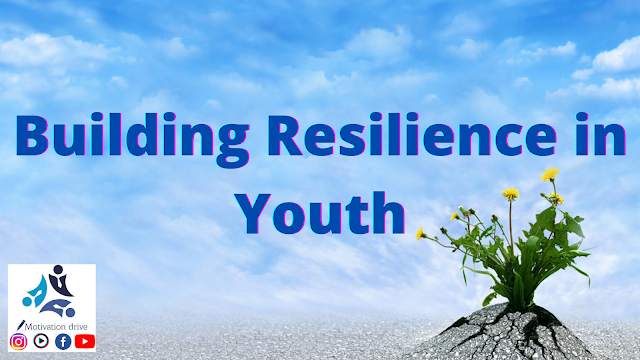Introduction The phrase “dark manipulation” makes people uncomfortable—and for a good reason. It is often associated with control, deception, or emotional games. But not everything that feels uncomfortable is unethical. In a noisy world filled with constant opinions, validation-seeking, and social pressure, subtle psychological awareness is not about controlling others. It is about protecting your self-respect. Most people are not manipulated because they are weak. They are manipulated because they are overly available, overly agreeable, and overly eager to be liked. What follows are not tricks or games. They are psychological truths about human behavior—truths many people learn only after being taken for granted, overlooked, or disrespected. Understanding these principles does not make you manipulative. It makes you aware. The Power of Not Laughing at Everything Many people believe that laughing at every joke or agreeing with every ...
Introduction
Resilience refers to the quality of facing all the adversities and making your way through them. A resilient person is able to resist, absorb, recover or successfully adapt to adversities or change. Some of the factors that contribute to resilience include our beliefs regarding ourselves, others, and the world. It also includes education, information, skills, behaviours, biases, and mental processes. There are 6 key skills that help us in building a resilient character that includes Vision, Composure, Tenacity, Reasoning, Collaboration, and Health. Therefore your resilience depends upon the way your life unfolds rather than a personality test.6 Key Skills to Build Resilient Character
1. Vision: The first key skill that helps in building resilience in youth is Vision. It refers to your sense of purpose, goals, and personal vision for yourself. If you have a clear vision, it helps you in making tough choices. Clarity regarding your vision keeps you more focused so that even in tough times, you know what’s important. It’s the most important skill.2. Composure: The second key skill that helps in building resilience in youth is Composure. It includes the art of regulating your emotions when there are sudden changes at work. You can do so by overcoming the instinctive emotional response and being composed. It helps you in recognizing hidden opportunities and solving problems.
Watch this video to tackle Fear of Death:
3. Reasoning: The third key skill that helps in building resilience in youth is Reasoning. It refers to the problem-solving ability with the help of creativity and innovation. It also includes anticipating things that can go wrong ahead of time proactively, making plans regarding them, and building resources like people, information, tools, and techniques to minimize their impact.
4. Tenacity: The fourth key skill that helps in building resilience in youth is Tenacity. It refers to the persistence for success. In order to be successful, you need to work hard and smart. But more importantly, you need to stay with a problem especially when you want to achieve something that nobody else has achieved. You must learn from your mistakes and have realistic optimism.
5. Collaboration: The fifth key skill that helps in building resilience in youth is Collaboration. Since we are social beings, it is very important for us to build support networks. Whatever we do and focus on is to improve our world. By collaboration, we can be a safety net for others and have a safety net for ourselves as well. It’s just that we need an understanding of the context of the interaction with people.
4. Tenacity: The fourth key skill that helps in building resilience in youth is Tenacity. It refers to the persistence for success. In order to be successful, you need to work hard and smart. But more importantly, you need to stay with a problem especially when you want to achieve something that nobody else has achieved. You must learn from your mistakes and have realistic optimism.
5. Collaboration: The fifth key skill that helps in building resilience in youth is Collaboration. Since we are social beings, it is very important for us to build support networks. Whatever we do and focus on is to improve our world. By collaboration, we can be a safety net for others and have a safety net for ourselves as well. It’s just that we need an understanding of the context of the interaction with people.
6. Health: The sixth key skill that helps in building resilience in youth is Health. It refers to the skill of taking care of your body by mindful eating with a balanced diet, exercise, and taking sufficient and quality sleep. It lays a strong foundation for your resilience that allows you to focus on your goals. Therefore we should avoid eating junk, packed and oily food. Also, we must do yoga/exercise every day and take sound sleep for 6-7 hours daily.


So inspiring
ReplyDelete